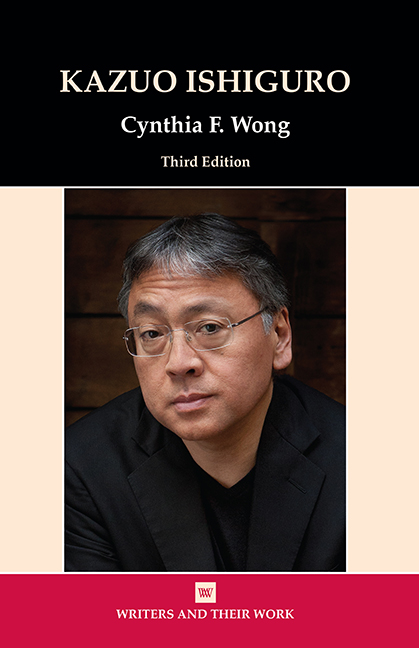Book contents
- Frontmatter
- Contents
- Acknowledgements
- Preface to the Third Edition
- Biographical Outline
- Abbreviations and References
- Introduction
- 1 Ishiguro as an International Writer
- 2 Reading the Novels
- 3 Narrative and Memory: A Pale View of Hills
- 4 Deflecting Truth in Memory: An Artist of the Floating World
- 5 Disclosure and ‘Unconcealment’: The Remains of the Day
- 6 Seizing Comprehension: The Unconsoled
- 7 Odd Failures of Guardianship in When We Were Orphans and Never Let Me Go
- 8 Parody and Performance in Nocturnes
- 9 Cloaked Memories in The Buried Giant
- Notes
- Select Bibliography
- Index
9 - Cloaked Memories in The Buried Giant
- Frontmatter
- Contents
- Acknowledgements
- Preface to the Third Edition
- Biographical Outline
- Abbreviations and References
- Introduction
- 1 Ishiguro as an International Writer
- 2 Reading the Novels
- 3 Narrative and Memory: A Pale View of Hills
- 4 Deflecting Truth in Memory: An Artist of the Floating World
- 5 Disclosure and ‘Unconcealment’: The Remains of the Day
- 6 Seizing Comprehension: The Unconsoled
- 7 Odd Failures of Guardianship in When We Were Orphans and Never Let Me Go
- 8 Parody and Performance in Nocturnes
- 9 Cloaked Memories in The Buried Giant
- Notes
- Select Bibliography
- Index
Summary
Ishiguro's seventh novel, The Buried Giant, appeared in 2015, ten years after his last, Never Let me Go, and it stands apart as a unique creation while having family resemblances to prior works: many manifestations of memory using a first-person perspective and – for the first time in any of his novels – a third person perspective to explore a collective sense of historical memory; self-deception as well as self-protection; and, narrative revision of entire lives now heading into the twilight. The novel delves into recognizable themes and motifs about recollection and commemoration, historical events tied to trauma, the dynamics of empathy, and the formation of self and community through a narrative reconstruction that is reminiscent of his prior novels.
This novel begins with a plot in which an elderly couple embark on a difficult walking journey to reunite with their son. Along the way, they try to recall how and why they became separated from their son, but they struggle to find answers. Soon, other travellers who have serious missions of their own join the couple, and Ishiguro artfully weaves the interactions of these disparate characters to reveal a common objective among them. This novel takes a further different turn from Ishiguro's prior ones by situating the events in a time before recorded history against a mythical post-Arthurian landscape, and then, creating a story that emphasizes its own fictionality. The novel succeeds in broadening the ways that people strive to understand the past in relation to once-shared histories that now seem to be slipping into oblivion. Ishiguro asks us to consider not only what happens when individuals forget but also to examine the stakes when entire communities or nations forget events. How can people connect to a shared past as they move onward if they collectively forget those events and their outcomes? Ishiguro's use of a thirdperson narration allows him to represent a wider range of consciousnesses than before, but this transition is not quite a smooth one and perhaps leaves his readers wondering about the fate of his characters more than ever. His familiar thematic explorations from earlier works are here embedded into the realm of fantasy and legend, which enables The Buried Giant to adapt familiar myths in fascinating situations.
- Type
- Chapter
- Information
- Kazuo Ishiguro , pp. 132 - 156Publisher: Liverpool University PressPrint publication year: 2019

